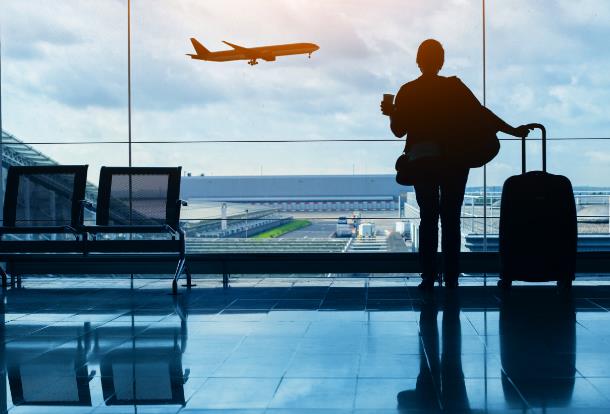American Express Global Business Travel has launched several new products and told BBT it is opening up the way it works with other technology suppliers.
In an exclusive interview, Evan Konwiser, vice-president, marketing and product strategy, said: "2019 is really a watershed year for a lot of our products and services. They're starting to change the way our clients manage travel."
He also outlined how, one year on from the acquisition of rival HRG, it is now consolidating much of its data to help build new tools on top of its core technology platform and “data lake”.
The announcements mark some of the biggest releases since Amex GBT launched its technology investment programme in 2015. "Fresh on the closure of the acquisition of HRG, we're really looking at our second rebirth since our separation from American Express in 2014," Konwiser told BBT.
"We've spent the last four years investing heavily in our core platform, and in the idea of building a foundation for business travel that would bring all the data required to power travel programmes of the future. Now, with HRG together, we're able to build on top of that foundation and set new standards of what we can do to service the traveller."
What’s new exactly?
The TMC today officially announced a new benchmarking service, Peer Travel Insights (PTI), which it claims gives travel managers access to traveller information captured across all travel booking channels globally – a “repository that houses more than six years of data”.
It measures travel programme performance and competitiveness across sectors, as well as “intangible traveller wellbeing metrics”, with a dashboard that assesses the impact business travel has on employees and benchmarks results across peer companies.
“There are positive KPIs, like the use of non-stop flights and access to business class seats on international trips, and negative, such as the percentage of red-eye flights taken and time travellers spend away from home,” the company said.
Konwiser said some clients had been testing PTI and that it was “selling like hot cakes”.
It was proving popular among the professional services sector, such as banking, accountancy and financial services, he added.
It is in its first version, so HRG’s extensive historic data is not currently factored in, but “now we’re bringing that data over – it will be normalised into the Amex GBT data lake, to offer quicker value”, Konwiser added.
PTI will be available to all Amex GBT clients.
Dynamic pricing
Amex GBT has also launched Hotel Re-Shop Expert (HRE), which acts in a similar way to Tripbam, identifying property rate drops, then automatically booking a cheaper hotel room. It claims the tool ensures recommended rates are like-for-like in terms of the original bed and room type that were chosen.
“HRE is a proprietary system, using our own data. It’s an important product for us in 2019. The results are outstanding,” Konwiser said.
“TMCs now need their own technology that helps companies manage the entire travel ecosystem. Some may opt for more proprietary tools and others may look for third parties, but either way, the TMC must bind the experiences together or else a key part of the TMC value proposition falls down.”
HRE is available to US customers on Apollo and in the UK, US and Canada on Sabre, and will be rolled out to Australia, Mexico, France and Germany by the end of 2019.
Tapping into AI
Another launch is Trip Recommender, which Amex GBT describes as a “hotel attachment solution”. It identifies those travellers who have booked a flight without a hotel, and then automatically contacts them with suggestions. The suggested property is based on policy, the traveller’s history, and similar traveller patterns.
“It picks three hotels, then fires up an email for you. It’s a great engagement tool,” Konwiser said. "[Other] recommendation tools aren’t great, they don’t come with enough credibility. Then the experience is worse, [and the employee] goes around the system."
“I haven’t seen what we’re doing with this out there. There are hotel attachment tools, but HRE is across email, agent and app channels, all in one place. We need to break away from the paradigm of having to log into an SBT [self booking tool]. This is 2019.”
Meanwhile, Konwiser said Amex GBT would integrate some of its new features into other online booking tools, as part of a wider focus on the mobile experience: “Our ecosystem is designed to be open, we want to be equally friendly. We are pursuing a variety of other tools; to develop that thematically, it’s important to us. We believe in our leadership position.”
The company added in a statement. “Booking capabilities are currently driven by Neo although booking will soon be available to more customers using other OBTs.”
Konwiser also touched upon the development of the company’s “data lake”. A data lake is a large centralised repository that allows a company to store all its structured and unstructured data at any scale. The data lake feeds into Amex GBT’s core technology platform (CTP), to power reporting and analytics capabilities.
David Thompson, chief information technology officer, added: “Having the proprietary CTP allows us and our clients to collectively control our own destinies. As new technologies emerge, and as we consider how to incorporate better artificial intelligence, biometric solutions and blockchain, we already have the core to plug into.”
Read Original Article




